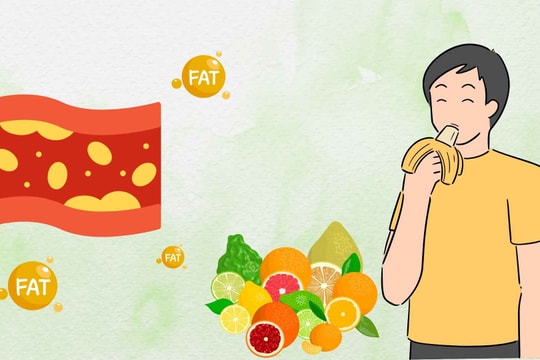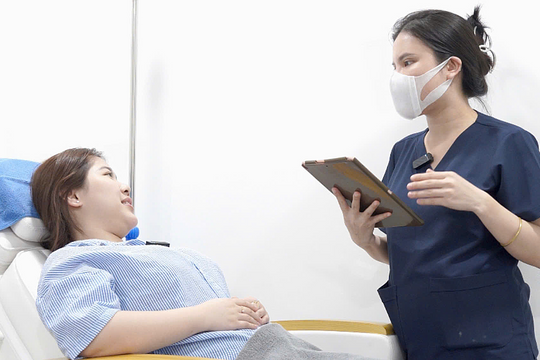5 changes to help reduce blood fat sustainably
High cholesterol increases your risk of heart disease and heart attack. You can improve this condition with medication, but the following five lifestyle changes will also help reduce cholesterol effectively and sustainably.

1. Choose heart-healthy foods
It's never too late to change your nutritional habits no matter what your diet has been like before:
Choose healthy fats:Saturated fats, found in red meat and dairy products, increase total cholesterol and especially “bad” (LDL) cholesterol.
So, less than 7% of your daily energy intake should come from saturated fat. Choose lean meats, low-fat dairy, and polyunsaturated fats (found in olive oil and canola oil).
Eliminate saturated fat:Saturated fat increases “bad” cholesterol and decreases “good” cholesterol. This increases the risk of heart attack.
Saturated fat is found in fried foods, cookies, chips, etc. And don't be too quick to believe "no saturated fat" labels because in the US, all foods with less than 0.5g of saturated fat are allowed to be labeled as such.
And with such a small amount of saturated fat, eating too much will add up. So read the ingredients carefully and avoid foods with partially hydrogenated oils.
Eat foods rich in omega 3 fatty acids:Omega-3 fatty acids do not affect LDL cholesterol. They are good for the heart, helping to increase HDL, the “good” cholesterol, reduce triglycerides, a type of blood fat, and lower blood pressure. Some fish, such as salmon, swordfish, and herring, are rich in omega-3 fatty acids. Other sources of omega-3 fatty acids include walnuts, almonds, and flaxseeds.
Increase soluble fiber:There are two types of fiber – soluble and insoluble. Both are good for your heart, but soluble fiber helps lower bad cholesterol. You can add soluble fiber to your diet by adding oats, fruits, beans, lentils, and vegetables.
2. Exercise most days of the week and increase your physical activity
Exercise can help lower cholesterol. Moderate activity also increases “good” cholesterol. The recommended amount of exercise is 30 minutes a day.
Adding physical activity, even for just 10 minutes at a time, can help you lose weight. Choose one of the following activities: Take a brisk walk after lunch; Bike to work; Swim a few laps around the pool; Play a favorite sport
To stay motivated, grab a friend or join a group. Just remember that any activity helps. Even taking the stairs instead of the elevator or exercising while watching TV can make a difference.
3. Quit smoking
If you smoke, stop now. Quitting will help lower your bad cholesterol, and the benefits don't stop there.
Just 20 minutes after quitting smoking, blood pressure and heart rate drop. After 1 year, the risk of heart disease is reduced by 50%. After 15 years, the risk of heart disease in smokers is the same as that of non-smokers.
4. Weight loss
Just a few extra kilos will cause your blood lipids to rise. Losing 5-10% of your weight is enough to improve your blood lipids.
Start by looking at your eating and exercise habits. See what challenges you face in losing weight and how to overcome them.
Always add small changes. If you tend to overeat when you’re bored, go for a walk instead. If you like fast food for lunch, prepare your meals at home. For snacks, choose carrot sticks instead of popcorn or chips. Don’t eat when you’re bored.
Add more activity to your day, such as taking the stairs instead of the elevator and parking farther away from the office.
5. Drink alcohol in moderation
Too much alcohol will only make health problems worse, from high blood pressure to heart attacks and strokes.
If lifestyle changes aren't enough…
Sometimes lifestyle changes do not lower your cholesterol as much as you would like, so be persistent and do not be discouraged. The results will not come immediately. If your doctor recommends medication, you should also comply and do not forget to practice your new lifestyle. Because only positive lifestyle changes can help you avoid increasing the dose of cholesterol medication.








